
''chaos,'' is a curious title for the new film by Paolo and Vittorio Taviani, a film with a profound and stirring sense of natural order. Adapted loosely from stories by Luigi Pirandello, ''Kaos'' tells four separate tales of Sicilian life. These fables, plus an epilogue about the author, are united by their shared imagery, their strong sense of community, their final ironies and the clear, graceful way in which they are told.
''Kaos'' unfolds with the rapturous simplicity that was most apparent in ''Padre Padrone,'' the first of the Taviani brothers' films to be released here, and that is even more mesmerizing this time. The task of adapting Pirandello proves particularly felicitous for these screenwriter-directors. Rigorous and eloquent, effortlessly poetic, ''Kaos'' is the Tavianis at their best.
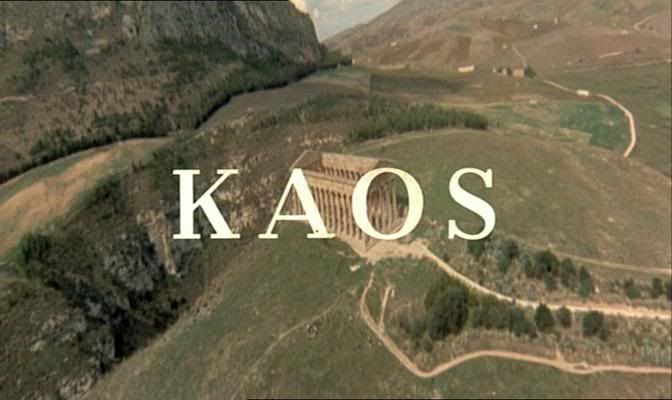
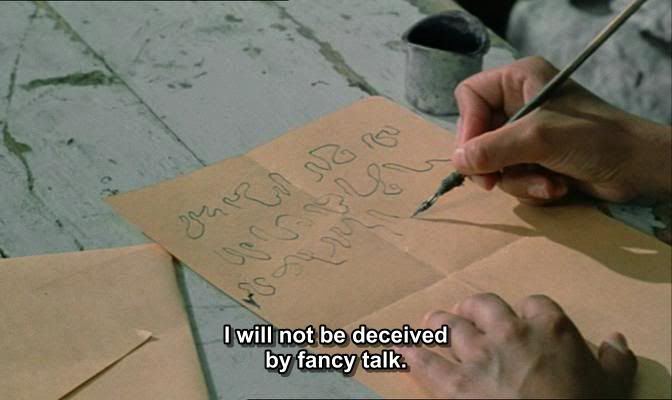
The first story, ''The Other Son,'' concerns a Sicilian mother (Margarita Lozano) pining for two boys who have migrated to Santa Fe. The mother's longing for her sons induces her to follow each group of prospective emigrants marching away from her village, in hopes of finding someone who will carry word to Santa Fe. During one of these marches, the emigrants stop for a break of several hours - and it is the Tavianis' unique, if romantic, feeling for communal scenes that enables them to let these peasants re-create their village life in an open field, without even requiring many props. Then, across the field, we see a man watching over a few head of cattle, even though the land is too barren for them to graze. Neither he nor the cattle belong there, but he is following his mother - the same mother who pines so incessantly for her other offspring. The rest of the tale provides the mother's account of how this strange situation can have come to be.
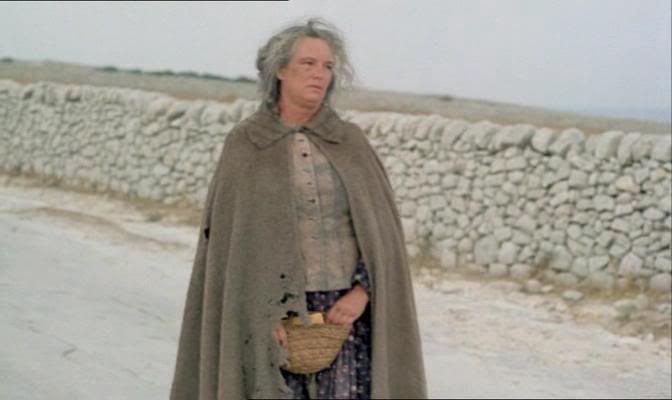
''Moon Sickness'' concerns a lonely young bride, Sidora (Enrica Maria Modugno), who has been living only briefly with her new husband, Bata (Claudio Bigagli), when the first full moon of their marriage occurs. Bata warns her to bar the doors and windows, then goes outside and howls so horribly that he leaves his wife petrified. In the morning, Bata is shamed by his behavior and goes to the village square, where - in a sequence especially well suited to the Tavianis' affectionate folk humor - he makes an anguished confession to the closed doors and shuttered windows that surround him. In another lovely sequence, Bata explains that his troubles began when his mother, working late in the fields while he was an infant, exposed the baby to his first full moon. Since then, the moon has driven him to temporary madness, and now he fears for his wife's safety. Of the four stories, it is ''Moon Sickness'' that has the most sadly knowing resolution.
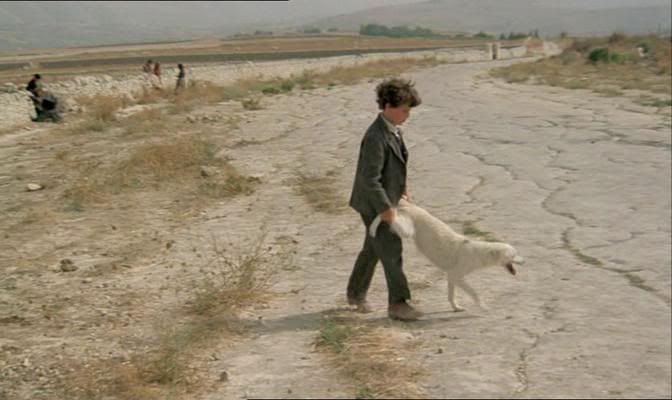
''The Jar'' is richer, more allegorical and more fanciful. Don Lollo (Ciccio Ingrassia), a wealthy landowner, has produced such a prodigious olive crop that he orders an immense container for the oil. The jar, a terra-cotta jug that is as big as a man, becomes Don Lollo's proudest possession. It stands in the middle of his courtyard until, one night, a shadow passes briefly over the face of the moon. When the shadow is gone, the jar is split in two. The story tells what happens when Don Lollo's glowering Uncle Dima (Franco Franchi), a man who likes to scare small boys by telling them he is the Devil's son, comes to fix the jug, and in the process seals himself up inside. Like the other stories here, ''The Jar'' uses elements such as the moon's influence, the sturdy, venerable architecture of Sicily and the unforgettable faces of some very well-chosen actors to heighten its spell.
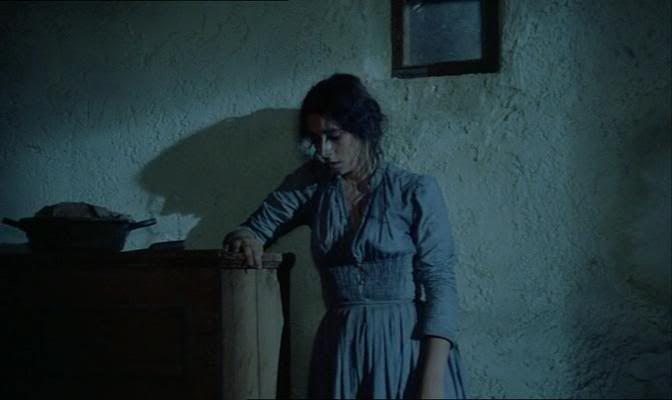
The fourth story, the briefest and most minor, is ''Requiem,'' about a village elder (Salvatore Rossi) who wishes to be buried in a particular spot, in defiance of the Baron (Pasquale Spadola) who owns the land. But ''Requiem'' serves a consolidating function, since it specifically recalls the opening scene (with the presence of the same actors) and anticipates the last. In the Epilogue, entitled ''Conversing With Mother,'' Luigi Pirandello (Omero Antonutti) returns to the same town that is seen in ''Requiem,'' and is visited by the apparition of his late mother (Regina Bianchi). She speaks of the importance of the departed, then tells a story of her own girlhood - one that lets ''Kaos'' end as it has begun, with a vision of strength, survival, and overwhelming natural beauty.
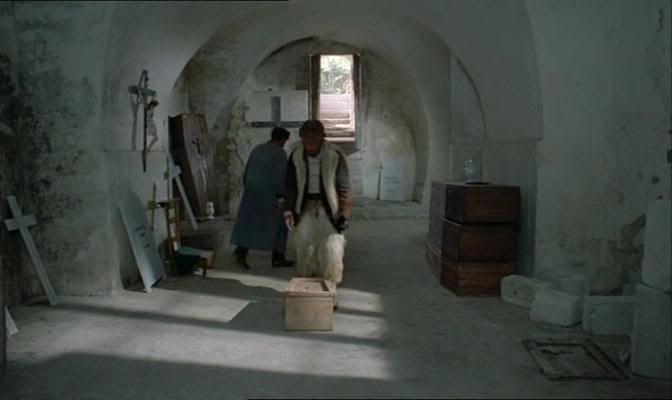 http://www.filesonic.com/file/45163705/Paolo_&_Vittorio_Taviani_-_Kaos.avi
http://www.filesonic.com/file/45163705/Paolo_&_Vittorio_Taviani_-_Kaos.avi1.37GB
http://www.filesonic.com/file/45163707/Paolo_&_Vittorio_Taviani_-_The_jar.avi451MB
no pass





































